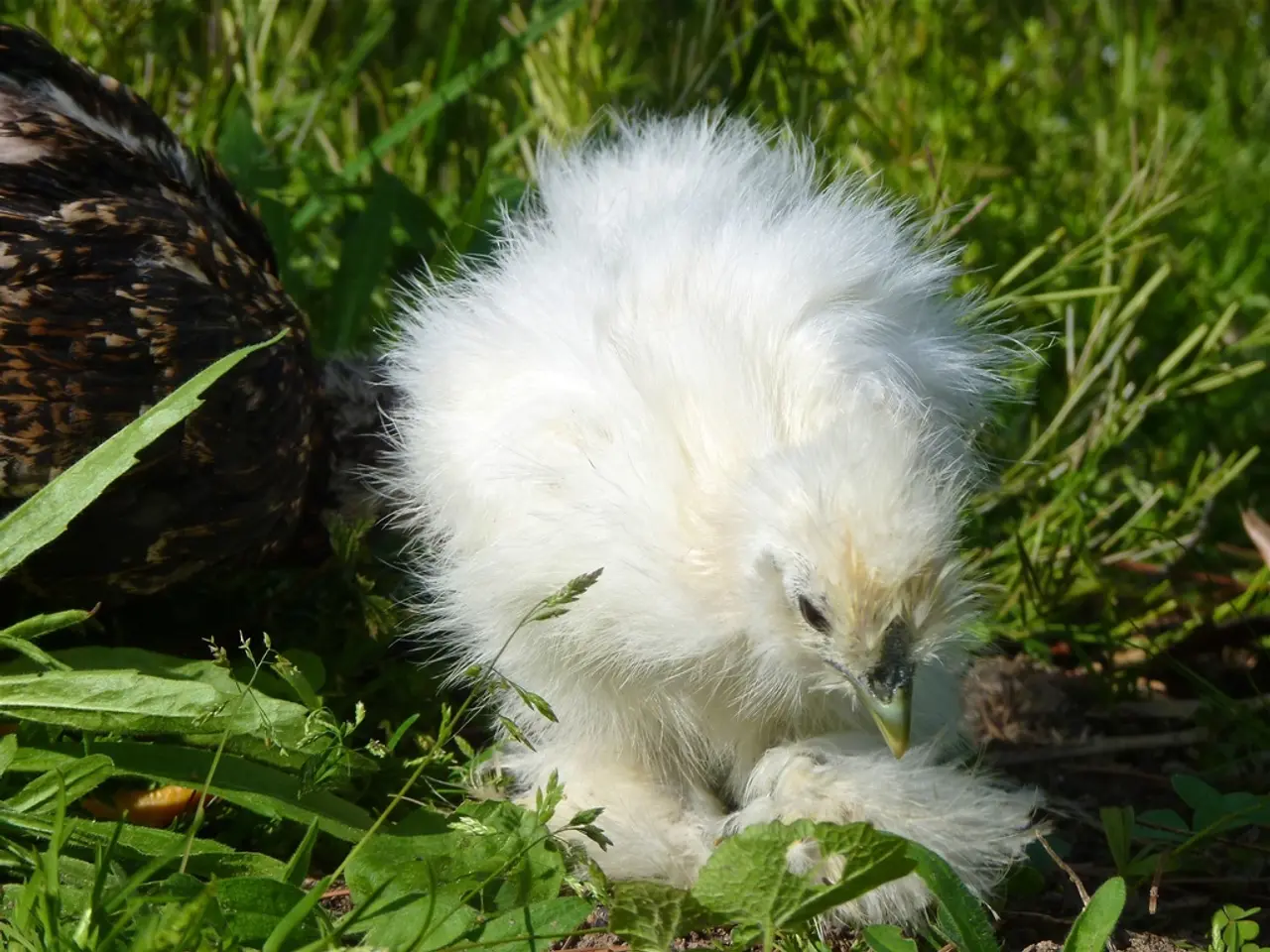Chickens Consume Insects: Utilizing Poultry as Natural Pest Management in Organic Farming
In the quest for a sustainable and eco-friendly garden, introducing chickens as natural pest controllers can be a game-changer. These feathered friends not only provide entertainment but also help maintain a balanced ecosystem, making them an excellent addition to any backyard.
Chickens are often supplemented with store-bought or DIY chicken feed for optimal nutrition. However, their diet should primarily consist of what they can forage in the garden. It's crucial to ensure that the insects they consume are not exposed to herbicides and pesticides, as these can affect their health, egg production, and taint the meat if the poultry are being raised for food.
When it comes to effective pest control, certain breeds stand out. Buff Orpingtons and Rhode Island Reds are highly recommended dual-purpose breeds that offer natural pest control alongside egg and meat production. Buff Orpingtons are especially noted for their willingness to forage and peck at insects in yards, making them excellent foragers. Rhode Island Reds, on the other hand, are active foragers that can help keep pest populations in check.
Easter Egger, a hybrid breed, is also a good choice for small yards. These friendly, hardy birds are known for their curious nature and colourful egg-laying abilities, making them a delightful addition to any garden.
General mixed backyard hens, often a mixture of various breeds, can also contribute to natural pest control. They are known for their ability to control tick and bug populations around their coops, adding a touch of personality while enriching the garden soil.
To ensure the best results, provide sufficient foraging space and protect delicate plants so chickens do not damage garden beds during pest hunting. Allowing chickens to free range can lead to them scratching up lawn turf as they search for prey and eat desired plants. To prevent this, consider using a chicken tractor or fencing to keep chickens out of garden beds.
Chickens are omnivores and will eat grasses, seeds, nuts, fruits, vegetables, mice, insects, and grubs. They can be a valuable asset in controlling pest populations, as they peck, scratch, and have keen eyes that spot even the smallest of insects. However, it's important to note that they should not eat certain house flies, as they can transmit chicken tapeworms.
In conclusion, while no single breed is perfect, breeds that are active foragers, hardy, and have natural curiosity perform best for integrated garden pest control while also offering eggs and/or meat. So, consider inviting these feathered helpers into your garden to help maintain a balanced ecosystem and enjoy a pest-free garden.
Read also:
- Avoidable foods during shingles: Hot, spicy dishes, sugary items, and so on
- Consuming Watermelons for Nutritional Benefits
- China and India engaging in negotiations to restart cross-border trade following a 5-year suspension
- U.K.-based software, dubbed MEMORI, gains first certification as a medical device, able to predict infections in real-time




